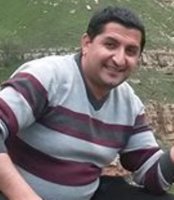UMID and HAYAT, the national NGOs, began to implement "Sustainable Community Development in the northern regions of Azerbaijan" project in areas along Northern Export Oil Pipeline, i.e. Siyazan, Davachi and Khachmaz regions under financial support of BP/Azerbaijan in April of 2003. Project goal covers an identification, mobilization and development of communities in this area, as well as improvement of employment and entrepreneurship opportunities of the population through community approach.
The project is planned to be implemented in three stages:
The project is in the first phase of its implementation, i.e. 15 communities were identified, meetings were arranged with governmental agencies of regions where these communities located. These communities were selected based on the following selection criteria:
-
Location of communities along the Northern Export Oil Pipeline;
-
Livelihood level and composition of the people;
-
Actuality of problems;
-
Distance to regional centers.
- General meetings and surveys were carried out in selected communities.
1000 community members (200 women) attended the meetings. Surveys covered 450 community members (280 women). Analyses of survey outcomes formed a detailed imagination about the communities, and revealed the top global problems, and lead to formation of the CAT. Providing gender balance within the CAT is of basic issue.
During discussion around survey outcomes in communities, CAT composition was decided and methods of working with the group were discussed. Hundreds of round tables were conducted with the participation of the most active members of the CAT.
Round tables covered the following topics:
Community leaders were selected and confirmed by the general meeting of the community. Management structure was elaborated, community passports and maps were prepared and hang up on the walls of community rooms. File of documents reflecting the activity of the CAT was prepared.
CAT members were delivered "Community Mobilization", "Work with Volunteers and Leadership", "Project Writing" trainings.
UMID and HAYAT use previously developed methods of approach and training modules on community, community mobilization, vocational skills and employment. In order to improve these approaches and modules, and apply efficiently to northern communities, UMID and HAYAT invited Danish Refugee Council, possessing the best practice on community development, vocational capacity building and economic opportunities extension as the Expert.


